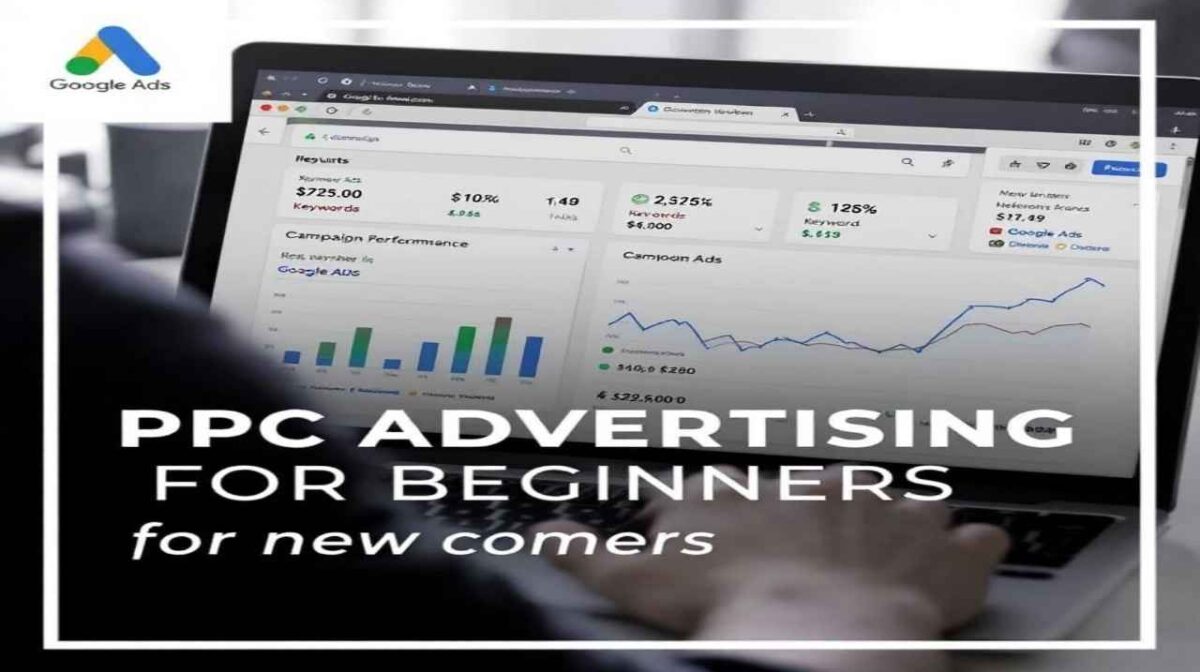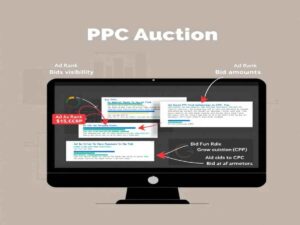Understanding Pay-Per-Click Advertising: A Beginner’s Guide

Digital advertising has changed the way companies communicate with their target audience, providing its users with a potent arsenal of tools to generate customer engagement. Of these techniques, Pay-Per-Click (PPC) is arguably the most efficient way to attract visitors, produce leads, and scale your company.
For those new to PPC and trying to get a handle on what to do, this post is for you. Let’s dive into what PPC is, how it works, how to get started with your first campaign and the best practices to get those conversions. By the time you finish, you’ll have all the confidence you need to start using PPC advertising to drive results.
What is Pay-Per-Click (PPC) Advertising?
At the very least, PPC is actually a type of online advertising in which companies pay fees for every click on their ads. Think of it like paying for visits to your website instead of trying to get them organically. This advertising strategy is particularly appealing, as it introduces your brand to users who are actively seeking products, services or solutions like those you offer.
Key PPC Principles:
- How it works: The Google search keyword auction model When people search for words relevant to those keywords, advertisements are served up in search engine results or elsewhere on the internet.
- Cost-Per-Click (CPC): Advertisers pay this every time someone clicks on their ad. Your CPC rate is affected by bid prices and ad quality.
- Common Platforms: Google Ads, Facebook Ads, Instagram Ads, Bing Ads, LinkedIn Ads, and numerous others provide platforms for businesses to run their PPC campaigns.
Why is PPC relevant? It delivers measurable results, instant exposure, and allows small businesses to compete with the giants of any industry by reaching an audience that matters.

How Does PPC Advertising Work?
To better understand PPC advertising, let’s start with the most widely-used PPC service: Google Ads.
The PPC Auction Process
- Search Query: A user enters a specific keyword or phrase into a search engine.
- Bidding: Advertisers bid on that keyword, setting a maximum price they’re willing to pay per click.
- Ad Rank: The Google Ads algorithm evaluates each ad based on:
- Bid Amount (the maximum CPC you’re willing to pay).
- Ad Quality (relevance of your ad and user experience on its landing page).
- Expected Click-Through Rate (CTR).
- Ad Placement: Ads with the highest scores are displayed in the top slots on the search engine results page (SERP).
Cost-Per-Click and Ad Rank
Both your bid and Ad Rank determine where your ad appears and the CPC you pay. A more optimised ad could actually trump your competitor due to a better Ad Quality score – even if you are bidding lower. That’s why it’s so important to be well versed in good ad copy and landing page optimization.
For instance, if you’re bidding on “affordable web design” when you sell affordable web design, you’ll also want to include your brand phrase later on in the ad. The winning ad will have the highest combination of cost score and quality score.

Setting Up Your First PPC Campaign
Launching your first PPC campaign can seem daunting, but it’s a pretty straightforward process once you break it down. Here’s a step-by-step guide:
Step 1: Choose a PPC Platform
For the first-timer, Google Ads is typically the sweetheart of the bunch, for its sheer scale and accessible interface. Another good choice for reaching a very particular demographic is Facebook Ads.
Step 2: Define Your Goals
Set clear campaign objectives, such as:
- Increasing website traffic.
- Generating leads.
- Boosting conversions or product sales.
Step 3: Perform Keyword Research
Targeting the right keywords is essential. Use:
- Google Keyword Planner to find search volumes and competition levels.
- Focus on long-tail keywords (e.g., “affordable web design services for startups”) for better targeting and less competition.
Step 4: Write Effective Ad Copy
Your ad copy needs to be persuasive and relevant. It should include:
- Strong headlines that grab attention.
- A clear call-to-action (e.g., “Sign Up Free”).
- Keywords that reflect the user’s search intent.
Step 5: Set a Budget and Bid Strategy
Choose the maximum amount you will spend each day and per click. Start small and see how you perform and scale.
Step 6: Launch Your Campaign
Launch the campaign once you have set your campaign settings (location targeting, ad scheduling etc.) But your job isn’t done yet.

Key PPC Advertising Strategies for Beginners
Smart Strategies That Will Lead to PPC Success: Success in PPC advertising calls for the use of smart strategies. Here are four key takeaways that will help you get them:
1. Keyword Targeting
- Concentrate on choosing high-intent keywords which represent buying or decision-making actions.
- Utilize negative keywords to exclude irrelevant searches and save wasted ad spend.
2. Optimize Ad Copy and Landing Pages
- Ensure your ad copy speaks directly to the user’s search intent.
- Link ads to high-converting landing pages with compelling offers and seamless navigation. Poor landing pages can hurt your Quality Score, increasing CPC.
3. Track Campaign Performance
Use tools like Google Analytics and Google Ads metrics to monitor:
- Click-Through Rates (CTR).
- Conversion rates.
- Cost metrics (CPC, Cost-Per-Acquisition).
4. Experiment with A/B Testing
Test different ad variations to see which performs best. Experiment with headlines, imagery, and CTAs.

Understanding Cost-Per-Click (CPC) and Budgeting
What is CPC?
CPC is the real money you pay for every click. It is an auction system so you pay less than your maximum bid if you have competition.
Budgeting Tips:
- Start with a defined daily budget to minimize risk.
- Assess ROI using conversion tracking tools.
- Adjust your spending based on results to allocate more resources toward high-performing campaigns.
Common PPC Mistakes to Avoid
Avoid these pitfalls to make the most of your PPC investment:
- Undefined Goals: Clear objectives guide campaign success.
- Skipping Keyword Research: Targeting the wrong keywords can waste your budget.
- Ignoring Ad Optimization: Unoptimized ads lead to low-quality scores and ineffective campaigns.
- Failure to Monitor Performance: Regular campaign adjustments are crucial.
Advanced PPC Techniques to Scale Your Campaign
Once you’re familiar with PPC basics, scale your campaigns with these advanced techniques:
- Ad Extensions: Use sitelinks, callouts, and structured snippets to increase ad visibility.
- Multi-Platform Advertising: Expand to Facebook or LinkedIn Ads for broader reach.
- Remarketing Campaigns: Reconnect with users who previously clicked your ad but didn’t convert.

Take Your First Step with PPC Advertising
Pay-Per-Click is a game-changer for companies looking to upgrade their digital marketing initiatives. With knowledge of the fundamentals and following these proven tactics, you can create campaigns that drive results that you can track, whether it’s more traffic, leads, or sales.
It is time to get behind the PPC strategy and grow your business. Still unsure where to start? Join Google Ads and start your PPC adventure now!
Share Your Thoughts and Learn More!
We’d love to hear from you! Have you ran Pay Per Click campaigns in the past? What wins or hurdles have you seen? Share your own experiences in the comments section or ask us anything because we are here for you.
Looking to deepen your knowledge? Please feel free to refer to our Guide to Creating Winning Digital Marketing Strategies or Beginner’s Tutorial on Google Ads for some of the deepest insights to help you win. There is always something new in the world of PPC which we can both capitalize on!
Frequently Asked Questions (FAQ)
What is the full meaning of PPC advertising?
PPC means Pay-Per-Click and is a form of internet advertising in which advertisers pay a fee each time one of their ads is clicked. It is a way of purchasing visits to your site as opposed to earning them organically.
Can newbies do PPC?
Absolutely! Beginner-friendly — A well designed platform like Google Ads makes PPC as easy as pie. Our linked guides and tutorials will help you get started and build confidence.
How can I determine if a PPC campaign is successful?
It should be noted that success can be gauged by a variety of KPIs, including Click-Through Rate (CTR), conversion rate, and Return on Investment (ROI). Ongoing analytics reviews are key to optimizing your campaigns.
What are the biggest pains in PPC advertising?
Some common problems include dealing with budget constraints, writing attention-pulling ad text, having an absolute inexhaustible list of the right keywords, and keeping pace with platform updates, to name a few. These can be conquered with time and effort.
Where can I find more information on PPC tactics?
There’s more learning to be done via resources like our Guide to Crafting Winning Digital Marketing Strategies other than checking out the Beginner’s Tutorial on Google Ads. Here, you get all the help needed to start and succeed in PPC advertising.





